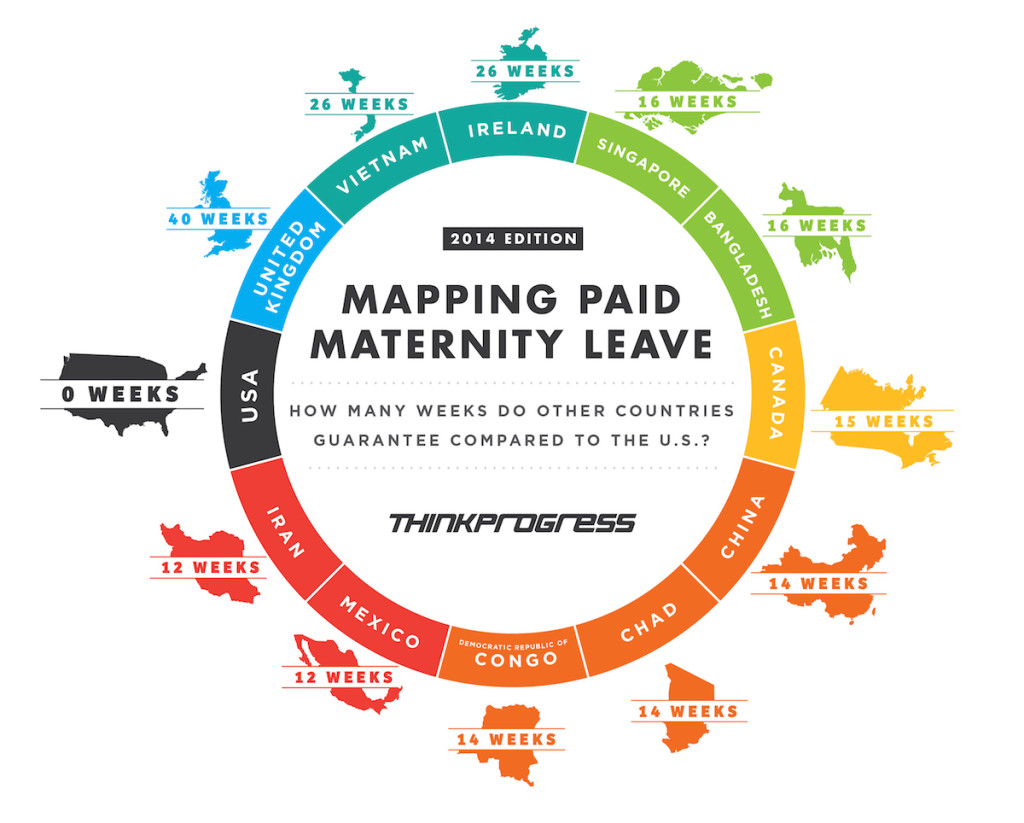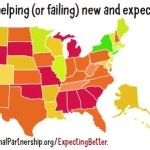Slovenia, Chad and Bangladesh are just some of the countries that have better leave policies than the U.S.
If you read any news about leave policies lately – and you probably have because its been a big topic – you are probably already aware that the U.S. has some of the worst leave policies in the world. In fact, the U.S. is the only industrialized nation that does not mandate paid maternity leave. We are in the company of nations like Papua New Guinea and Swaziland as one of only four nations in the world that offers no paid leave for new mothers. Additionally, the U.S. is one of only nine OECD countries (highly developed nations) that have no mandated paternity leave policy. Why does the U.S. fall so far behind the rest of the developed world in supporting family leave?
According to research by the OECD, mothers are entitled to 17 weeks of paid maternity leave on average in the developed world. In fact, almost all OECD countries offer paid maternity leaves of at least three months at an average of 78% of total earnings, and twelve countries mandate 100% pay throughout maternity leave. In addition, 70 countries also mandate paid paternity leaves.
The U.S. is nowhere close to supporting families in the same way that most of the developed world has been for decades. Mothers in neighboring Canada for example, including surrogate mothers, are eligible for 52 weeks off following the birth or adoption of a child at 55% of their salary. And either parent can use an additional 35 weeks of unpaid parental leave to care for their newborn.
Because the U.S. does not mandate paid leave it is up to companies and organizations to fill in this gap for families across the country. However, only about 12% of workers are eligible for paid leave through their employers. This means if you are able to add a review of your company’s policy to List Your Leave that includes a percentage of paid leave, no matter how little it may be, you are one of the lucky 12%.
Until the U.S. joins the rest of the developed world in supporting families with paid leave, it will be up to companies and organizations to ensure their workers have what they need to balance family and career. Use List Your Leave to make sure companies know leave matters to you and your family.








Comments (0)